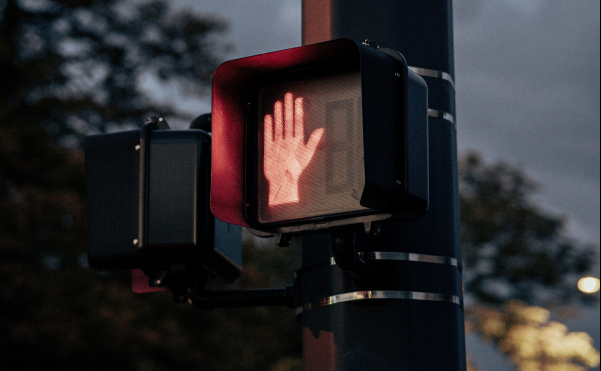While everybody is talking about AI, more and more advertisers are banning it from creative agencies, adding clauses to contracts, or asking for proof of the reality of productions.
You can read all the stories we published in English in our special section Strategies in English.
Generative artificial intelligence is on everyone’s lips. It promises many “revolutions” in the advertising sector. But the reality is quite different. AI is far from being unanimously accepted. ChatGPT, Dall-E or Midjourney are even banned from some projects. Some advertisers formally prohibit it and even put pressure on agencies not to use it.
“We see a form of schizophrenia on some of our clients. On the one hand, they ask us to be at the forefront of innovation and creativity, in touch with these new creative technologies, and on the other hand they impose contractual amendments to ensure that we do not use AI in projects”, said Vincent Reynaud Lacroze, general director of We Are Social agency.
Same story at the Fred & Farid Paris agency. “Some clients tell us that our creations are exceptional, they like them very much. But as soon as they know that AI was involved in the creative process, whether it is for storyboard or for other details, they refuse them”, said Olivier Lefebvre, president and creative director of the agency. “We even had some clients who asked us for proof of filming and photoshoots in order to be sure that AI had not been used”, added Vincent Reynaud Lacroze. It happens even when clients are on site during the production process…
Different reasons can explain why advertisers are so reluctant and so formal in their refusal. “First of all, AI esthetic is still very special, and we quickly identify when AI is behind the creation”, said the general director of We Are Social. “It is especially true on social networks where people are looking for authenticity, and where the simple and DIY aspect works very well.”
Fake "look and feel"
The “perfect” creations, those resulting from algorithms, disturb the public by their fake "look and feel". “It's bound to change. The improvement of AI in the last six months is very promising for the future”, according to Vincent Reynaud Lacroze. And the algorithms will be able of produce imperfect “homemade” products. The other reason is of a legal nature: the question of copyright in the data used to train generative AI systems has not been resolved yet. Advertisers fear serious legal backlash in the future.
“There is a grey area on the subject. And advertisers reflect society: fears linked to AI tools also exist among our clients. We need to teach them how to use it and tell them how we do it”, added Olivier Lefebvre. AI is not intended to produce only the final work from the right prompt, it can be used at different stages of the process, from brainstorming to post-production change. “We experienced the same thing on mobile, on influence marketing… As soon as there is a technological leap, fear appears from the beginning”, added the creative director.
“This does not slow down our work", said Vincent Reynaud Lacroze. This is an expected reaction, and we knew that there would be braking, hesitancy, and acceleration. But once these legal details would be decided, we will have to be ready”, he concluded. But needless to say that these reluctances constitute a brake. That’s probably why Microsoft announced on September 11 that it is ready to play the insurer, and to “cover” possible copyright lawsuits…


